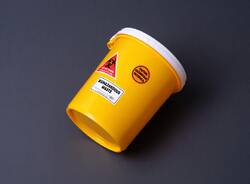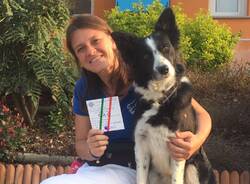Insubria Laboratories identify mechanisms responsible for chronic pain

The investigation was conducted by the Cellular and Molecular Physiology Laboratory where researchers started from the results obtained by the Nobel Laureates in Medicine, David Julius and Ardem Patapoutian.
The sensors responsible for the perception of temperature and pain, for which David Julius and Ardem Patapoutian won the Nobel Prize in Medicine, are the subject of the two research projects in the Laboratories of Human Physiology and of Cellular and Molecular Physiology at the University of Insubria.
Our ability to perceive heat, cold, pain and touch is essential for our survival, and represents our interaction with the world around us. In our daily life, these perceptions are taken for granted, but how do nerve impulses trigger so that temperature and pressure can be perceived? This question was answered by the winners of the Nobel Prize of this year.
David Julius used capsaicin, the “active ingredient” of chilli pepper, which triggers a perception of burning, to identify a sensor (TRP, Transient Receptor Potential) which responds to heat, in nerve endings. Ardem Patapoutian used pressure-sensitive cells to discover a new category of sensors which respond to mechanical stimuli in the skin and internal organs.
These revolutionary discoveries, which occurred between 1997 and 2010, have started an intense research activity internationally, in which the university in Varese and Como takes part with two significant contributions. In particular, Professor David Julius, who works at the University of California in San Francisco, provided some materials to the Insubria team.
In the Laboratory of Molecular and Cellular Physiology, coordinated by Professor Elena Bossi, by combining the use of the same techniques as Nobel Prize winner David Julius and materials from her own laboratory, some of the factors responsible for chronic pain have been identified: Trpv4 and Trpm8 channels, receptors that respond to mechanical stress and temperature, which are found in much larger numbers in pathological tissue and cause the sensation of pain.
“There are several active ingredients that activate the receptors by mimicking the effects of heat and cold: for example, chilli peppers give a hot effect, menthol instead gives a cold sensation. Studying these receptors has accelerated our ability to understand how our system processes these signals: when a chronic pain condition occurs, the receptors increase and lead to a pathological situation,” explains Elena Bossi.

Researchers from the Department of Biotechnology and Life Sciences participated in the study, which was supported by Fondazione Comunitaria del Varesotto: Stefania Fozzato, Nicolò Baranzini, Elena Bossi, Raffaella Cinquetti, Annalisa Grimaldi, Paola Campomenosi and Michele Francesco Surace.
The results were recently published in the European Journal of Physiology and in Stefania Fozzato’s recent PhD thesis titled “Investigating novel targets for next generation chronic pain therapies”.
In the Human Physiology laboratory coordinated by Professor Daniela Negrini, on the other hand, the role of Trpv4 in the contractility of the lymphatic system was studied.
The study was published at the end of last year in the American Journal of Physiology, and was carried out by researchers from the Medical Department: Eleonora Solari, Cristiana Marcozzi, Michela Bistoletti, Andreina Baj, Cristina Giaroni, Daniela Negrini and Andrea Moriondo. Professor Moriondo, in charge of the study, began his career as a researcher at the Neuroscience research centre of Kings’ College in London where, in conjunction with Julius’ laboratory, one of the first Trp, specifically the one sensitive to capsaicin, was characterised.
Translated by Nicole Dall’Osto and Fiorelisa Bosio
Reviewed by prof. Robert Clarke
La community di VareseNews
Loro ne fanno già parte
Ultimi commenti
Emilio Corrao su Balli e abbracci: il flash mob di Cocquio Trevisago per dire “no“ alla violenza di genere
principe.rosso su Gallarate "capitale" della remigrazione: il comitato di estrema destra annuncia un presidio in città
Felice su Vandalizzate le lucine di Natale al Sacro Monte di Varese
PaoloFilterfree su Martelli: "Sovranisti a parole, genuflessi nella realtà. Così l’Italia si perde"
MarcoCx su Incendio nella notte in una fabbrica a Groppello di Gavirate, decine di uomini impegnati
Felice su Martelli: "Sovranisti a parole, genuflessi nella realtà. Così l’Italia si perde"
















Accedi o registrati per commentare questo articolo.
L'email è richiesta ma non verrà mostrata ai visitatori. Il contenuto di questo commento esprime il pensiero dell'autore e non rappresenta la linea editoriale di VareseNews.it, che rimane autonoma e indipendente. I messaggi inclusi nei commenti non sono testi giornalistici, ma post inviati dai singoli lettori che possono essere automaticamente pubblicati senza filtro preventivo. I commenti che includano uno o più link a siti esterni verranno rimossi in automatico dal sistema.